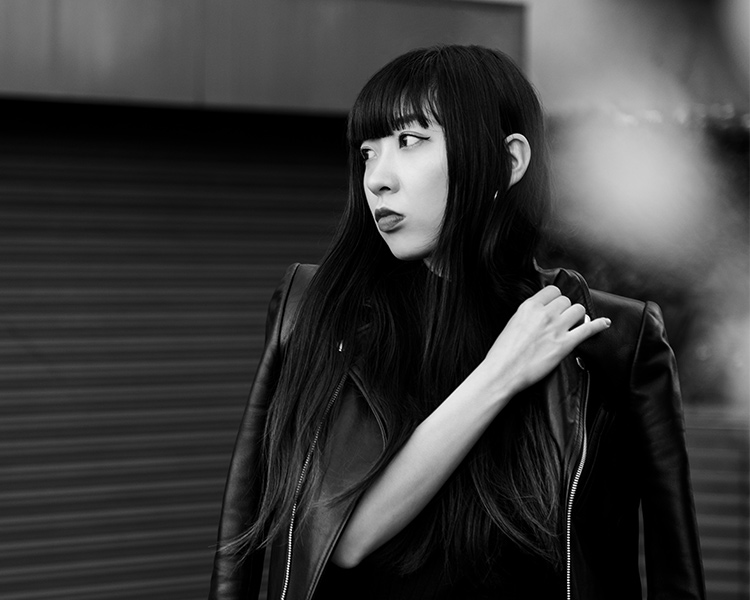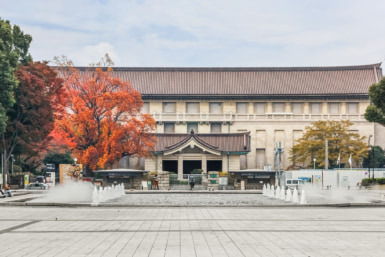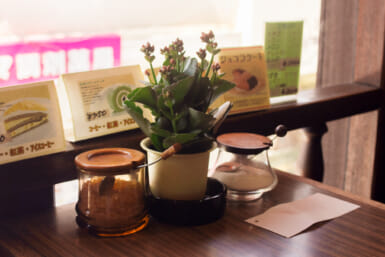Risa Taniguchi, dressed in flat-soled sneakers, black jeans and a black AllSaints overcoat tucked up to her ears, navigates the narrow shopping streets outside of Nakano Broadway. Passing mom and pop coffee shops, udon stands and closet-sized camera stores lined with faded boxes of film, she searches for an izakaya-style bar that opens during daylight hours.
When she finds one – “a super, super normal chain restaurant” – she wends her way to the wooden booth in the back corner. She sets a green pack of Marlboro IQOS on the table. She orders a draft beer.
“Please note that Nakano is the best place for an izakaya tour,” says Taniguchi. “If anyone wants to know which izakaya is good, then you can just check out my Facebook artist page.”
“I am such a bad DJ,” she says with a chuckle.
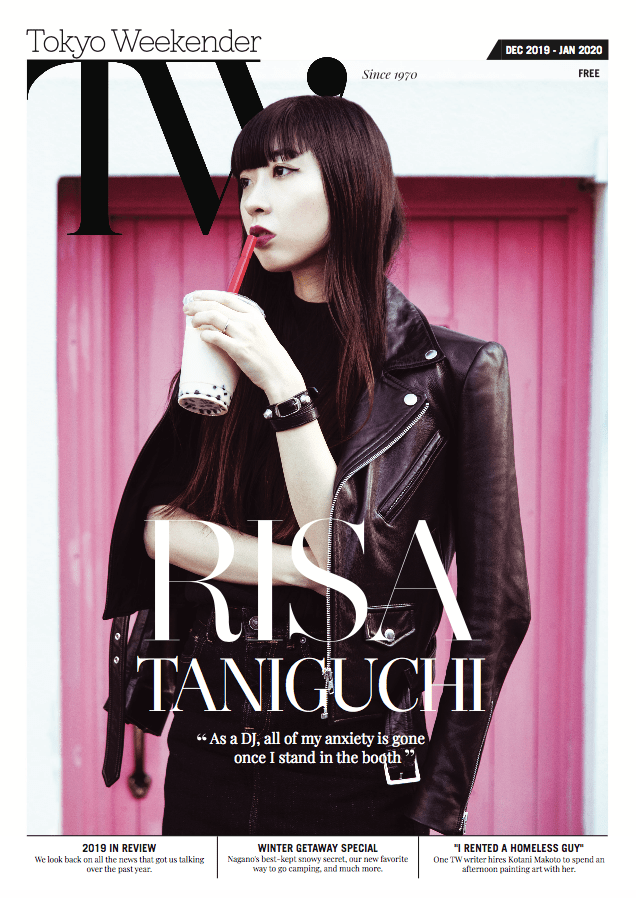
Taniguchi is fresh off her first European tour where the DJ with cropped bangs, ruby red lipstick and a Johnny Cash aesthetic made the crowd go wild at Watergate in Berlin, the club considered one of the driving forces for techno music.
“The first time I was in Europe, I was by myself, just a backpacker. I was just a member of the audience,” says Taniguchi. “Now I am in Berlin at Watergate and they are dancing to me. I was like, ‘Wow.’”
Also a producer, this month her latest song, “Enough,” will be listed as a track on the SUM VA release by German label Second State. In January she heads to Budapest. In between she continues to perform at Tokyo’s top clubs.
Between sips of beer and puffs of her e-cigarette, Taniguchi contemplates moving to Europe, where her music is gaining traction. Where the beauty of Amsterdam’s cityscape brought tears to her eyes. Where there is no seniority-based hierarchy system for DJs like there is in Tokyo. Where celebrity drug busts don’t attract police attention and negative press to the techno scene. Where the audiences dance.
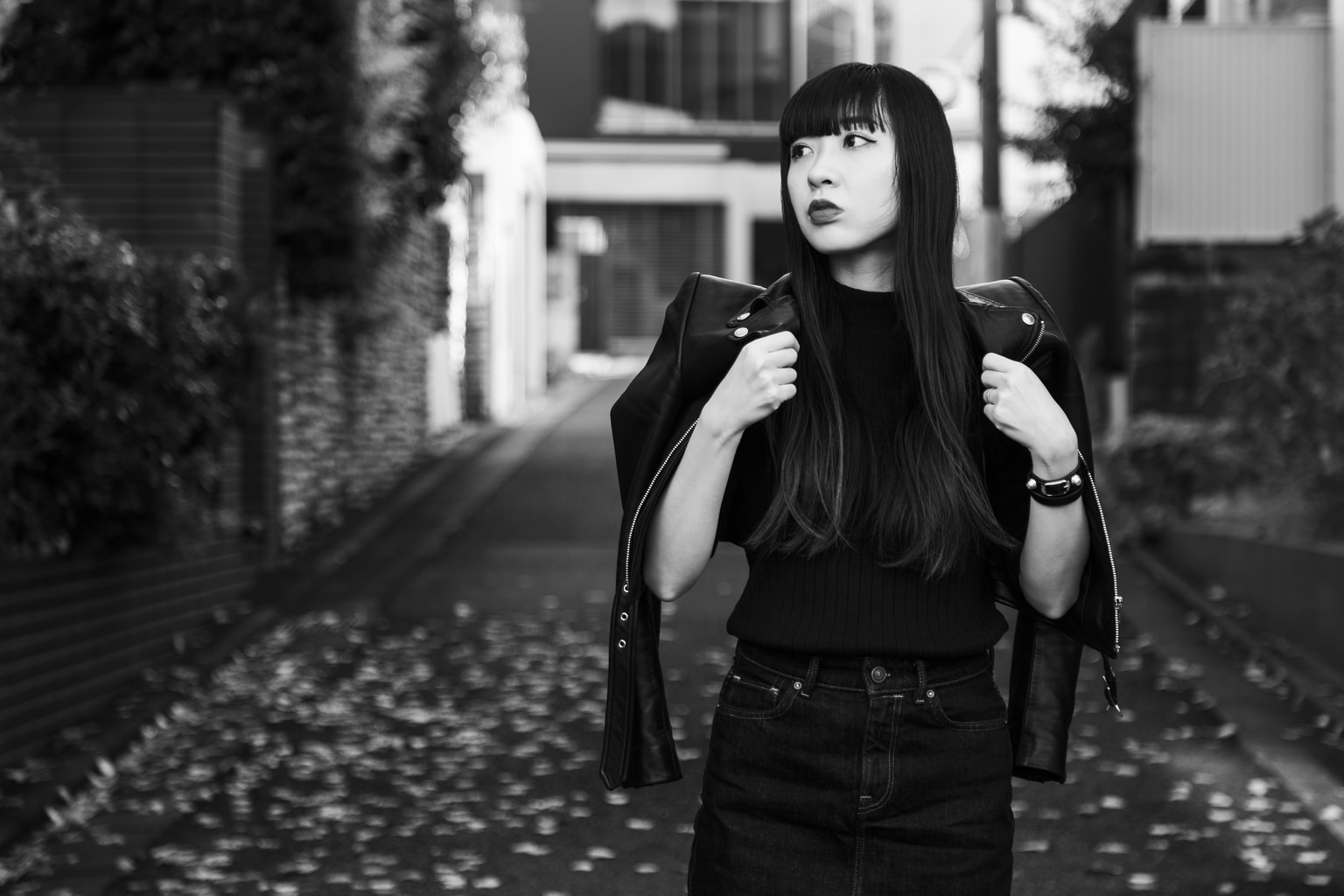
However, during her four-week stint in Europe she became homesick for Nakano.
“I really like eating food. It is the most important thing for me,” says Taniguchi, laughing. “It is why I haven’t decided totally to move to Europe, because I really love my food. I really love this izakaya culture.”
When Taniguchi lived in Shibuya for a spell, even that was too far away. She moved back to Nakano, Tokyo’s second home for otaku culture and eight-scoop ice cream cones.
“I guess I really like dark songs. I hope this doesn’t reflect my inner side”
It was where Taniguchi grew up as an only child in a small apartment with her father, a French chef, and her mother, who once worked for avant-garde fashion designer Yohji Yamamoto, known for master-tailored, black clothing. Taniguchi says she was jealous of the girls who dressed in pink because her mother dressed her only in black.
Her parents took her to a performance of the NHK symphony and the kindergartener was enraptured by the classical music. By age seven, Taniguchi was vehemently practicing piano under her own volition. She was drawn to Beethoven’s “Moonlight Piano Sonata,” Chopin’s “Ballade No. 4” and Schubert’s unfinished “Symphony No. 8” – all which fall in the minor key.
“I guess I really like dark songs. I hope this doesn’t reflect my inner side,” she says.
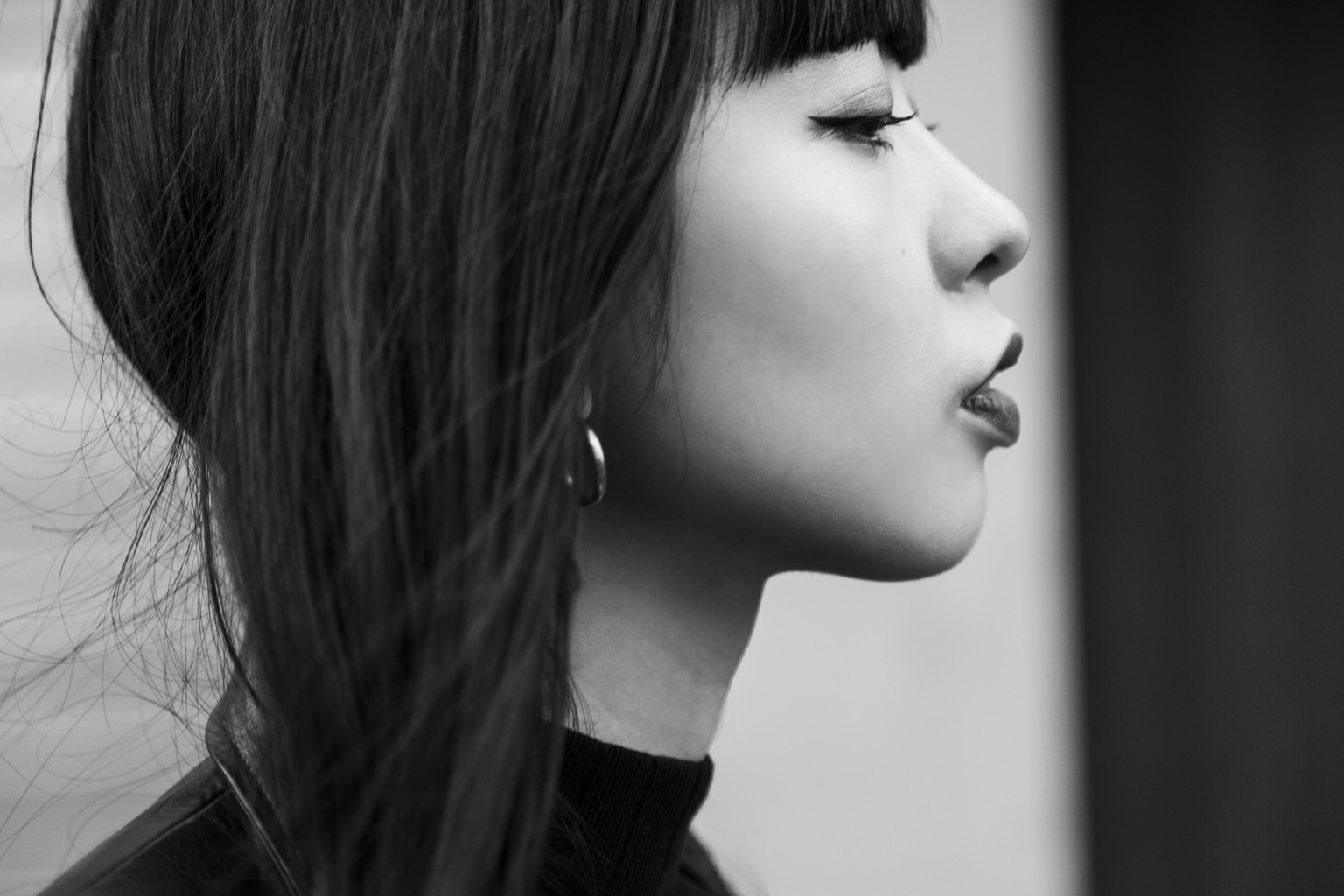
In junior high school she played trombone in the brass band even though her arms were too short. She simply tied a string to the trombone’s slide.
Her parents didn’t have enough money to send Taniguchi to private school, so she selected one of Tokyo’s few public high schools that offers orchestra so she could pick up a third instrument – the violin.
Taniguchi was set on attending one of Tokyo’s premier music universities, but crippling stage fright prevented her from performing piano recitals, ending her classical music career. With a talent for languages, Taniguchi majored in French at university.
A friend introduced her to Harajuku’s electro scene and Taniguchi spent all of the money she earned working part-time at a coffee shop on DJ gear. Promoters were always looking for young, cheap talent to open for headliners, and she started gigging on weekends. Between studying, practicing, pouring espressos and DJing, Taniguchi slept four or five hours a night.
She was lured to the dubstep beats coming out of London. At age 20, she headed to Dublin to study abroad for summer break. After realizing there were no clubs in Dublin, three days later she booked her own flight to London.
Her first stop was the legendary techno club Fabric, and she immersed herself in the underground bass scene. English DJs, such as the electronic music project Magnetic Man, inspired her to begin producing her own techno music.
“I went out to Fabric every night. It was mindblowing,” she says. “People were just getting crazy, dancing to the music. In Japanese venues we tend to be more introverted, usually holding our mobile, just nodding. [Fabric] was totally different … It was super free and just more passionate.”
“I took a look at my career and I thought, ‘If I die tomorrow, what would I regret?’ I was like, ‘I really want to DJ in Europe’”
After university, Taniguchi undertook a second education of sorts when she was hired by a company importing professional audio and recording equipment. She studied the tools and software. She watched YouTube tutorials on how to produce songs. She launched a label to release her own music.
At age 28, fed up with the Japanese work-style of the company, she quit.
“I took a look at my career and I thought, ‘If I die tomorrow, what would I regret?’” says Taniguchi. “I was like, ‘I really want to DJ in Europe.’”
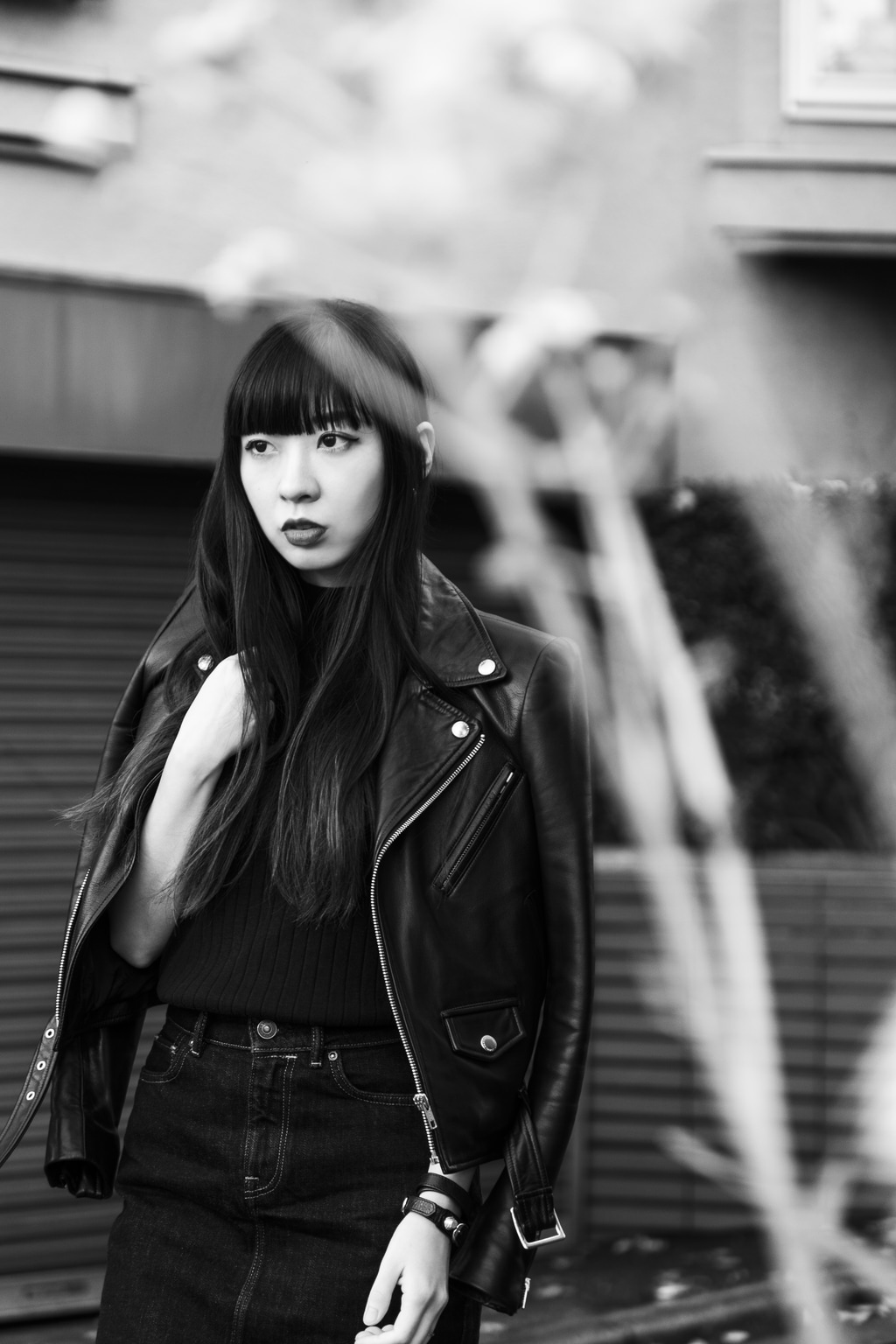
She sent demos to European record labels and contacts, including one of her idols, Maceo Plex. One day, she randomly listened to Plex’s latest mix on YouTube and she heard her song.
“Literally, I cried.”
She extracted the clip from YouTube and shared it to her social media sites. An overseas label saw the clip and offered to release the song, “What Are You Doing,” which she performed during her set at the American music festival South by Southwest in 2017.
“I don’t think I have succeeded at anything. Maybe in the near future, I hope”
With abrasive bass and elements of acid, labels were drawn to Taniguchi’s dark, distorted, heads-down style of techno. Barcelona-based label Clash Lion released Ambush in 2018, and the album was played on BBC Radio 1, reaching Beatport’s number five position on the leftfield techno chart.
“Producing new music is always exciting to me, but gigging is the best,” says Taniguchi. “When I played piano in front of people I would die because I was super nervous, but as a DJ, all of my anxiety is gone once I stand in the booth.”
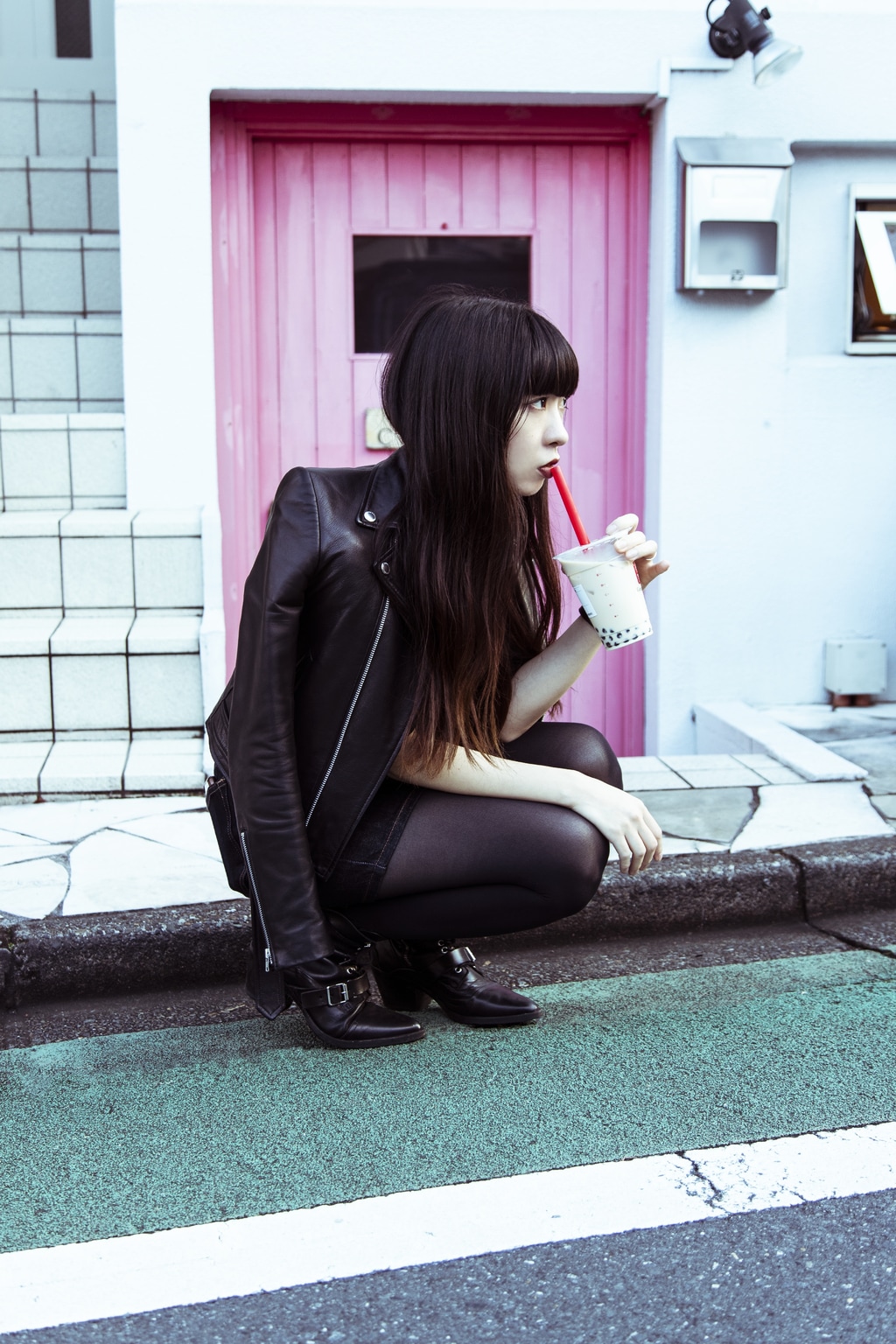
She records her tracks in her tiny Nakano bedroom. She starts with the drumbeat, usually inspired by something she heard, and felt, while dancing at the club.
She records her own vocals, and to avoid reverb she sits cross-legged on her bed, covered with a comforter, singing into her iPhone. That’s how she recorded her song “Ridiculous,” her first single released last summer by Second State.
“I don’t think I have succeeded at anything. Maybe in the near future, I hope,” says Taniguchi. “I have a lot of friends all over the world because I am doing music. That is the most important thing to me.”
Keep up with Risa Taniguchi on Instagram
Photographs by Allan Abani
Updated On April 26, 2021

